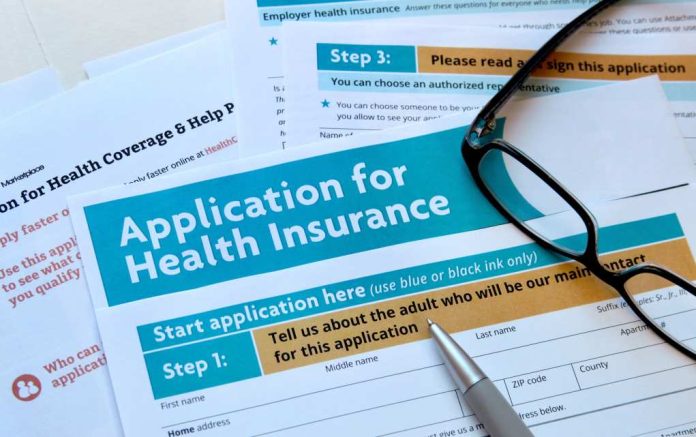
Health insurance is important coverage for Americans to have. There are so many options to consider and factors to keep in mind when considering your options. Luckily, it doesn’t need to be a stressful process. Health insurance is easier to manage than you may think.
What is Health Insurance
Before diving into how to find the right health insurance for your situation, you want to make sure you clearly understand what health insurance is. Health insurance is insurance coverage that can pay for expenses like health expenses and medical expenses. Some of the services that this type of insurance covers includes:
- Emergency Care
- Routine Care
- Treatments for Illnesses
There are a variety of different sources when it comes to health coverage. Some people can get healthcare through their job. On the other hand, some people can get health coverage through government health insurance programs like Medicare or Medicaid. However, a lot of people get health insurance through the health insurance marketplace.
The health insurance marketplace is a service that helps people find health insurance options. While the federal government has a version known as the Health Insurance Marketplace®, some states have their version of the marketplace.
Different Types of Health Insurance Plans
Not all health insurance plans are created equal. That is why there are a variety of plans to check out. Before we dive into the plan options, it is important to remind you that every plan is different! The information we talk about below is just general guidelines. The only true way to review opportunities is by looking at specific plans offered by an insurance company like Cigna, BlueCross BlueShield, etc., so you can ask them questions about available coverage. Some plan options to consider include:
- Health Maintenance Organization (HMO) Plans
- Preferred Provider Organization (PPO) Plans
- Exclusive Provider Organization (EPO) Plans
- Point of Service (POS) Plans
Health Maintenance Organization (HMO) Plans
These plans require the covered individual to stay in-network (except in cases of emergency). In-network refers to providers like doctors and hospitals that accept insurance. Generally, if you want to see a specialist you will need to get a referral from your Primary Care Physician (PCP). While the benefit to these plans is that they usually have lower out-of-pocket costs, you don’t have the freedom you may want to choose a provider.
Preferred Provider Organization (PPO) Plans
This is a popular option for people that like to have a lot of flexibility in their care options. This type of health insurance plan doesn’t require the covered individuals to stay in-network. However, in-network care is typically more affordable. A drawback to these plans is that they can have higher out-of-pocket costs.
Exclusive Provider Organization (EPO) Plans
These plans require the covered individual to stay in-network (except in cases of emergency). Generally, if you want to see a specialist then you don’t need to get a referral from your PCP. These are similar to an HMO plan in that it typically comes with lower costs and still has limited provider freedom.
Point of Service (POS) Plans
This is another popular option for people that like to have a lot of flexibility. This type of health insurance plan doesn’t require the covered individuals to stay in-network, although in-network care is typically more affordable. Individuals with this plan will need to have referrals just like with HMO plans.
How to Pick a Health Insurance Plan
Now that you have a brief overview of what health insurance is, it is time to pick one that works for you and your situation. First, you need to have an understanding of your financial situation. Private health insurance can be expensive. While there are affordable options, you need to know what your budget can handle. A general rule of thumb is to spend no more than 10% of your yearly income on health insurance.
Besides keeping your budget in mind, you need a plan that will focus on the health needs of your life and family. For example, a young healthy individual with no health problems will not need the same level of coverage as a senior citizen with cancer, diabetes, and lupus.
Factors to Keep in Mind When Reviewing Plans
There are some specific factors that you will want to keep in mind when checking out different plan opportunities available. These factors include:
- Different Health Plan Networks
- Out-Of-Pocket Costs
- Additional Benefits
Different Health Plan Networks
We talked about having to stay in-network or having the flexibility to go out of network when discussing the different plan options above. It’s important to keep this in mind because if you have a preferred doctor, the insurance plan you have may not cover them! If you are someone that wants a wide variety of options when it comes to health coverage then you should keep this in mind as well. Let’s say you have a preferred doctor but something happens and they no longer work. If you have limited options, it can be hard to find the care you need!
Out-Of-Pocket Costs
Plans will come along with a premium every month. This premium is the monthly fee you pay for your health insurance plan. However, this premium is different from the out-of-pocket costs of a health insurance plan.
These costs refer to how much a covered individual will need to pay out of their pocket since the charge is not covered by insurance. These are important to keep in mind because they can make a world of difference in cases of emergency!
Additional Benefits
When reviewing different health insurance plans, you want to keep your healthcare needs in mind. For example, let’s say you take a specific medication every day. You will want to know that the plan you choose covers the medication at a cost you can afford. Another example would be if a person needs a specific treatment. If you have cancer, you want to make sure that the radiation you need is covered under your plan.
Bottom Line
When it comes to finding a health insurance plan that works for you, it is easier than you think. First, you want to make sure you have a clear understanding of health insurance and some different plan options you can consider. Once you have that foundation, you can begin finding a health insurance plan that’s a fit for your life needs and budget. Comparison shopping is key when reviewing your options. You also want to make sure to make the most out of the resources that are available to you. This includes checking out the health insurance marketplace at either the federal level or if applicable, through your state’s portal. These portals can show you the information you need to know about your plan. They even have representatives that can help you review your options!
















